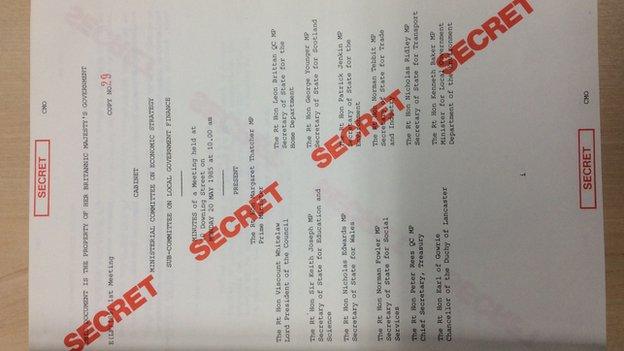Margaret Thatcher's criticism of Brixton riot response revealed
- Published
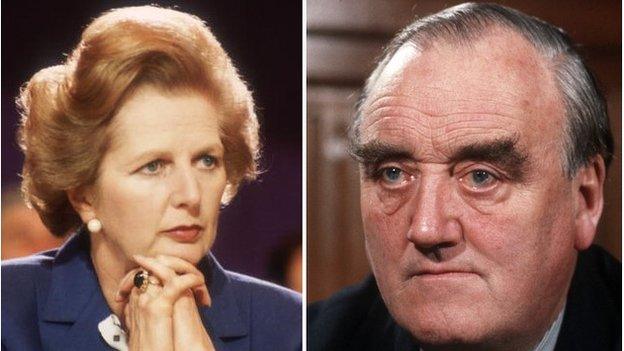
Baroness Thatcher seems to have disagreed with her home secretary Willie Whitelaw's police reform ideas
Prime Minister Margaret Thatcher's concerns about official responses to the 1981 Brixton riots have been made public for the first time.
Lord Scarman led a five-month inquiry into the unrest in south London.
The files, released by the National Archives, cover the period after the Scarman Report's publication in 1981.
A handwritten note by Mrs Thatcher on a summary of the report reads: "I'm afraid the report seems highly critical of the police."
The home secretary at the time, Willie Whitelaw, presented it to the Commons in a statement on 25 November 1981, external.
At the time it was positively received by a cross-section of MPs from different parties.
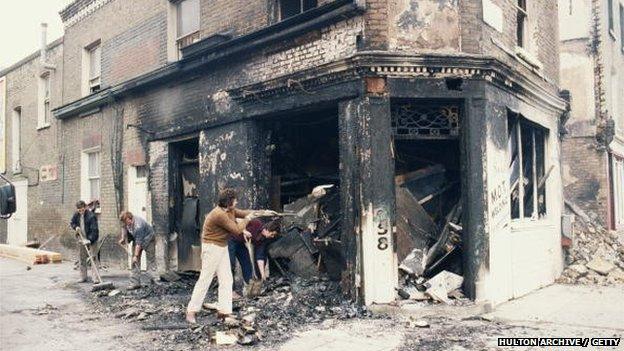
The rioting in Brixton left 279 policemen and 45 members of the public injured
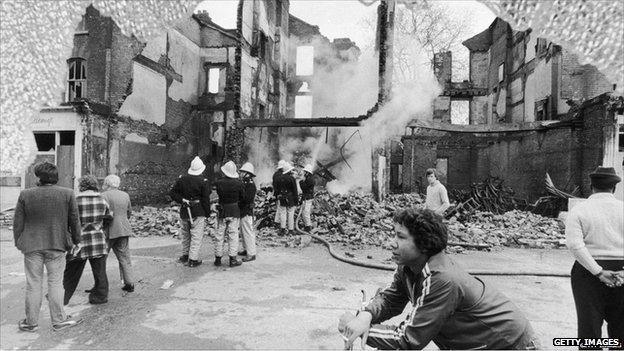
The damage caused cost an estimated £7.5m to repair
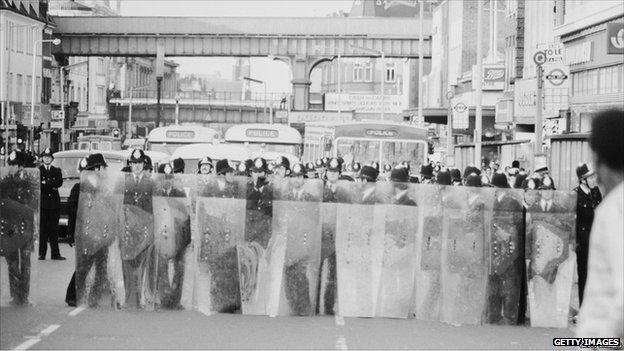
The riots lasted three days as Metropolitan Police officers struggled to contain the angry crowds
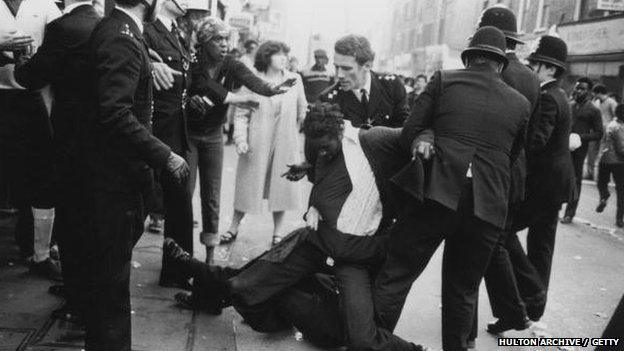
Tensions in Brixton had been heightened by Operation Swamp, an attempt to cut street crime in Brixton
The rioting which erupted in Brixton, in the south London borough of Lambeth, shocked the nation.
For three days, rioters - predominantly young, black men - fought police, attacked buildings and set fire to vehicles.
Tensions in the area had been heightened early that April by Operation Swamp - an attempt to cut street crime in Brixton which used the controversial "Sus law" to stop and search more than 1,000 people in six days.
More than 300 people were injured in the riots and the damage caused came to an estimated value of £7.5m.
The public was shocked by the unexpectedness of events, because it seemed to many at the time that black people were well integrated into the fabric of UK society.
Mr Whitelaw described Lord Scarman's recommendations as "a statement of philosophy and direction for the future", adding: "I accept and endorse this statement of philosophy."
Mr Whitelaw paid particular attention to - in his words - "the need to develop formal arrangements in every police force area for consultation between police and community".
'Very worried'
Less than a year later, in June 1982, Lady Thatcher received a briefing telling her of the home secretary's intention to introduce a statutory duty on police to consult the community.
This would have the advantage, the Home Office note said, of "increasing the flow of information between the Police and the community which Scarman felt to be essential".
Lady Thatcher wrote in response: "I confess to being very worried about this.
"It will soon be said that the police cannot prosecute or search without consultation. I cannot see what they are going to be compelled to consult about."
Her government later made arrangements for community consultation as part of the Police and Criminal Evidence Act 1984, after Willie Whitelaw had been replaced as home secretary.
- Published30 December 2014
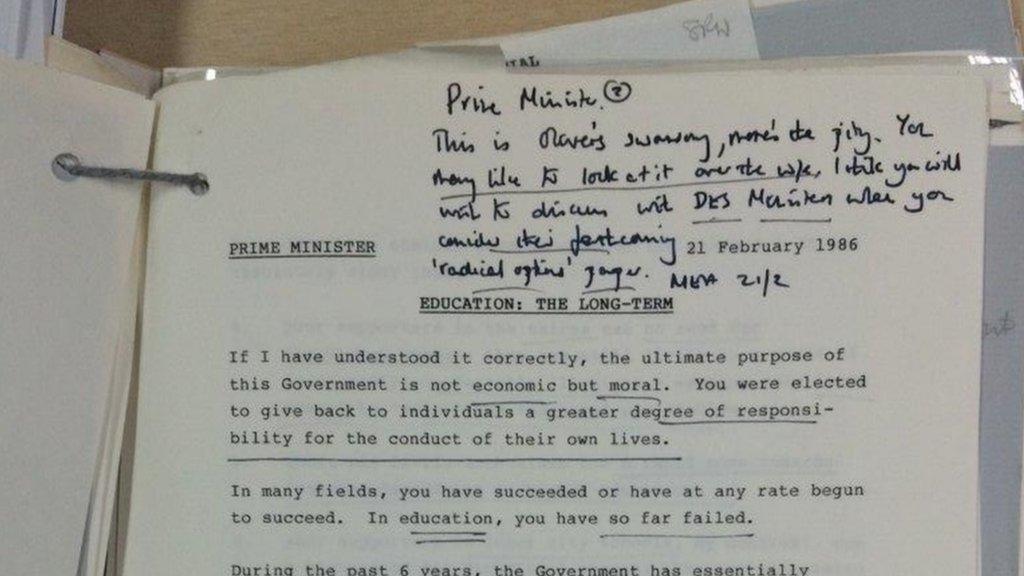
- Published30 December 2014
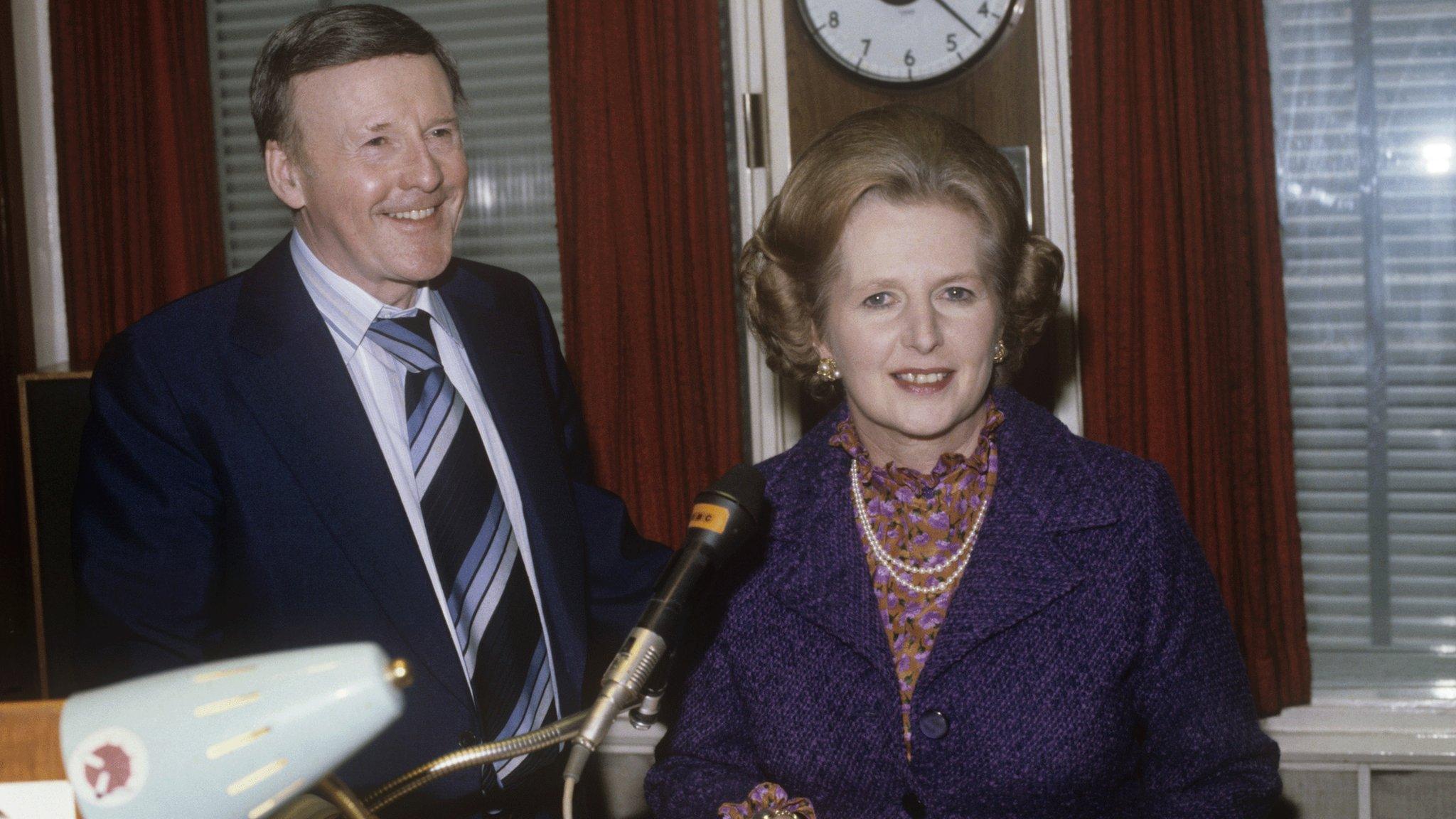
- Published30 December 2014
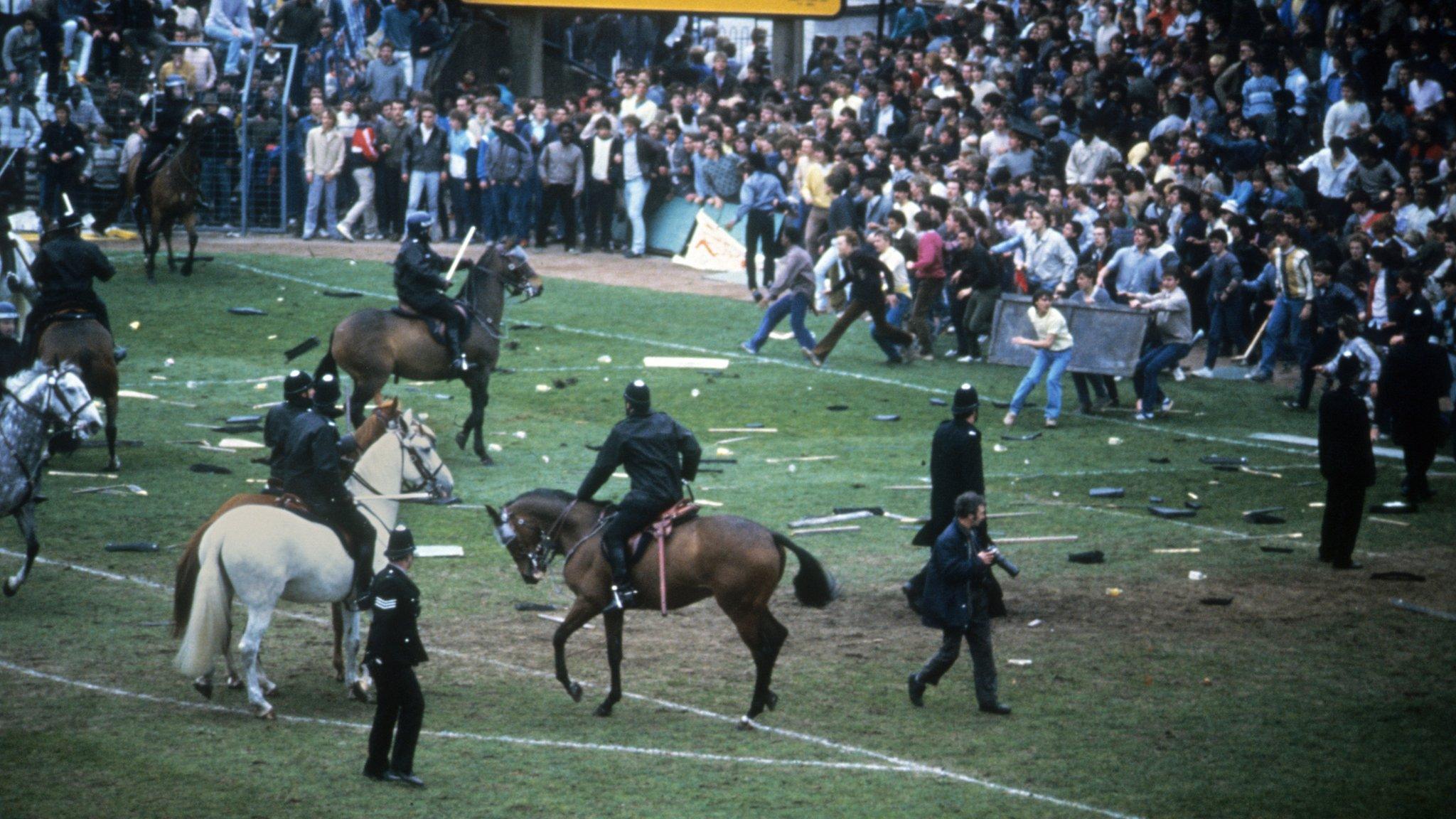
- Published30 December 2014
